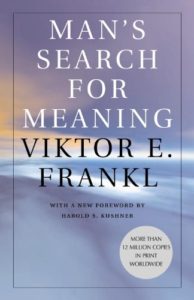Imagine waking up tomorrow morning in your house or apartment. You are going about you’re morning routine – making coffee, eating breakfast, watching the morning news. There is an unexpected knock at your door. You answer and are greeted by group of uniformed men. They enter your house, uninvited. Two of them immediately bind your hands behind your back while the others gather the other members of your family – your spouse, your children, other family members living with you. You are led out to a truck without the opportunity to gather any of your personal effects. They put you and your family in the back, where you see other people you recognize from your neighborhood. You are led to a train station where you are separated from your family and placed into a crowded cattle car. The car is enclosed so you cannot tell where you are going. At your destination, you are shaved head to toe, sprayed down, and given rags for clothes. For the foreseeable future, your life involves limited food, limited sleep, and hours of forced manual labor. All of the modern amenities you enjoy have been taken away from you – no cell phone, no internet, no email, no social media, no television. You have no connection to the outside world. Your only connection is to the guards and other prisoners who are in your camp.
Sound far-fetched and unbelievable? It isn’t.
Such was the fate of many Jews across Western Europe during the Second World War. They were rounded up, removed from their normal every day lives, and taken as prisoners by the Germans. They were separated from their families, subject to inhumane living conditions, and forced into performing manual labor in support of the German war effort. Many of those who were taken prisoner were doctors, lawyers, and other professionals. They were hard-working, law-abiding citizens who had done nothing wrong.
Remarkably, some survived these conditions. One of the survivors was Viktor E. Frankl, and his book Man’s Search for Meaning documents his experience in the concentration camps. More importantly, Frankl talks about how he survived, what the experience taught him about himself, and what he learned about man’s existence. His experience inspired the formulation of logotherapy, the methodology that he used as a basis for psychological treatment.
The book is divided into two parts. The first is an overview of the conditions and events that took place in the concentration camps where Frankl was imprisoned. The second half of the book talks about what he observed and learned through the experience.
The first part of the book is graphic and brutal. It is hard to believe and imagine that another human being would treat another in the ways described. Even more unbelievable is that some, such as Frankl, would find the mental fortitude to endure the conditions and survive.
In the second half of the book, Frankly reveals what he observed and learned. While all of the observations are powerful, there are three that stood out to me.
- The question we should ask ourselves is not “why am I here?” but “what does life expect of me in the current moment?”
One of Frankl’s most powerful observations is that it doesn’t matter what we expect from life, but what does life expect from us? To put it another way, life means taking the responsibility to find the answers to the problems and the tasks which life constantly sets for each individual. For each person, these problems and tasks are unique and differ from moment to moment. If it a person’s destiny to suffer, then it up to the person to accept suffering. The opportunity lies in the way the person chooses to bear his burden. - We retain our right to choose, even under the most extreme circumstances
Forces beyond our control can take away everything we have except one thing – our ability to choose how we respond to a situation. While we cannot control what happens to us in our life, we can control what we feel and do about what happens. - When we cannot change a situation, then we must change ourselves
Whether we are presented with situations of abundant happiness or despair, we must be able to adapt ourselves to the present situation. We must develop an awareness of our presence and the ability to respond to what life is asking of us in the moment.
Man’s Search for Meaning is not a light read, but it is an important one. It is a book that is consistently referenced in other personal development books I’ve read over the last couple of years, and now I understand why. Frankl’s work is based on experience. He observed, in the most extreme conditions, the decisions and choices a person must make in order to find meaning in their existence. If Frankl is able to do it while undergoing extreme suffering, then certainly each of us should be able to do it given the comfortable environment we are afforded.
I’m putting Man’s Search for Meaning in my Must Read category, with a caveat. It is a book that everyone should read at some point in their journey of personal growth. However, I wouldn’t put it at the top of the list. I would recommend reading other works first, and then use Frankl’s work to see how these concepts can be put into practice under the most extreme conditions.

